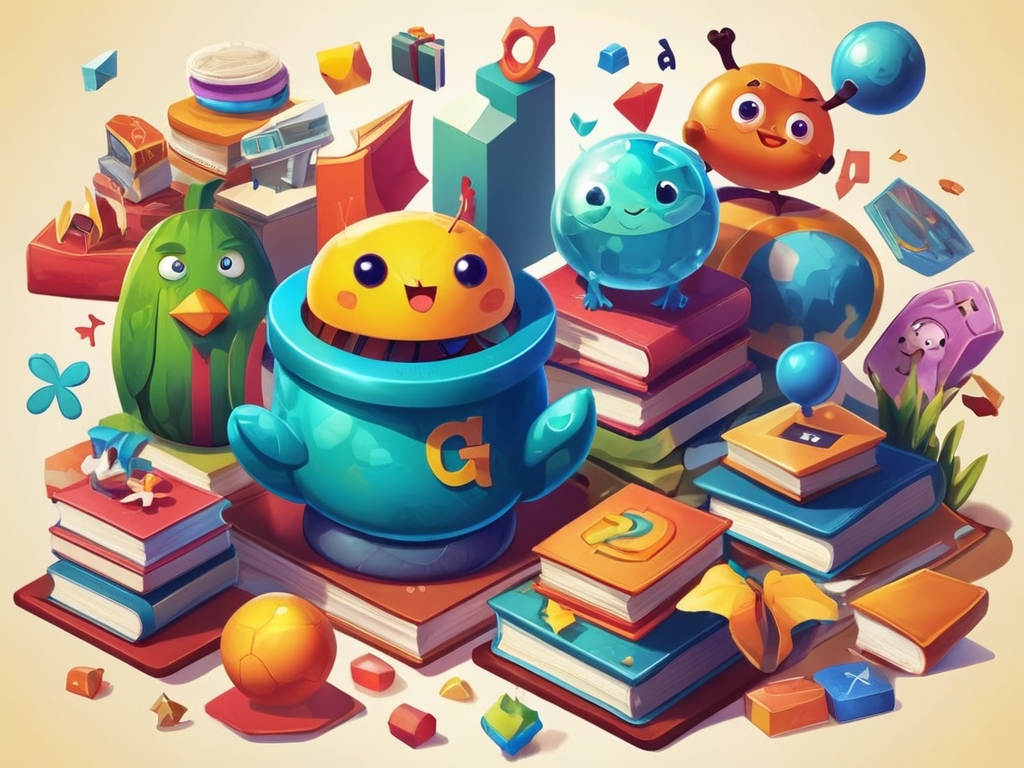
Gone are the days when learning meant sitting quietly at a desk with textbooks. Today’s digital world offers an exciting alternative: educational games that transform learning into an adventure. These free educational games aren’t just about entertainment – they’re powerful tools that make learning engaging, interactive, and most importantly, fun.
From preschoolers mastering their ABCs to high school students tackling complex physics concepts, educational games are revolutionizing how we think about learning. They offer a unique combination of challenge, reward, and immediate feedback that traditional learning methods often struggle to provide.
The Power of Play: Why Educational Games Work
Research consistently shows that game-based learning can significantly improve knowledge retention and student engagement. Here’s why educational games are becoming essential tools in modern learning:
1. Active Engagement
Unlike passive learning methods, educational games require players to think, react, and make decisions actively. This engagement helps students stay focused and motivated, particularly with challenging subjects like mathematics or science.
2. Immediate Feedback
Games provide instant feedback on decisions and answers, allowing learners to:
- Understand mistakes immediately
- Adjust their approach in real-time
- Build confidence through successful attempts
- Learn from failures without fear of judgment
3. Skill Development Beyond Academics
Educational games don’t just teach subject matter; they develop crucial life skills:
- Critical thinking and problem-solving
- Hand-eye coordination and motor skills
- Time management and strategic planning
- Social skills through multiplayer interactions
4. Personalized Learning Paths
Modern educational games often adapt to each player’s skill level, ensuring that:
- Advanced learners stay challenged
- Struggling students receive extra support
- Everyone progresses at their optimal pace
5. Motivation Through Achievement
Games naturally incorporate elements that boost motivation:
- Achievement systems and rewards
- Progressive difficulty levels
- Clear goals and objectives
- Visual progress tracking
By combining these elements, educational games create an environment where learning feels less like work and more like play, while still delivering substantial educational value. The best part? Many high-quality educational games are completely free, making quality education more accessible than ever.
Categories of Free Educational Games: Something for Every Age and Subject
Preschool and Early Learning (Ages 2-5)
Early education games focus on building fundamental skills through colorful, engaging activities. Popular options include:
- Letter and Number Recognition Games
- ABCmouse’s alphabet games
- PBS Kids’ Count with Me
- Starfall’s phonics activities
- Basic Concepts Games
- Shape matching puzzles
- Color sorting activities
- Simple pattern recognition games
Elementary School (Ages 6-11)
Math Games
- Number Operations
- Prodigy Math Game: RPG-style adventures solving math problems
- Cool Math Games: Quick puzzles and brain teasers
- Math Blaster: Space-themed arithmetic challenges
Reading and Language Arts
- Vocabulary Building
- Sight Word Space Race
- Word Girl’s vocabulary games
- Spelling City’s free activities
- Reading Comprehension
- ReadTheory’s interactive stories
- BookFlix’s digital storytelling
Science and Discovery
- Natural Sciences
- National Geographic Kids’ ecosystem explorers
- NASA Kids’ Club space adventures
- BrainPOP’s science animations and games
STEM and Coding (Ages 8+)
Programming Basics
- Block-Based Coding
- Scratch: Visual programming projects
- Code.org’s Hour of Code activities
- Tynker’s free coding challenges
Mathematics and Logic
- Problem-Solving Games
- DragonBox for algebra concepts
- Euclidea for geometry
- Monster School Bus for fractions
Language Learning Games (All Ages)
- Beginner Level
- Duolingo’s gamified lessons
- Digital dialogs with characters
- Vocabulary matching games
- Advanced Practice
- Language immersion simulations
- Cultural context games
- Conversation practice activities
High School and Beyond (Ages 14+)
- Advanced Subjects
- Chemistry molecular building games
- Physics simulation puzzles
- Historical strategy games
- Advanced math concept explorers
Special Education and Accessibility
Many of these platforms offer:
- Adjustable difficulty levels
- Screen reader compatibility
- Motor skill alternatives
- Visual and audio customization options
Each category serves specific learning objectives while maintaining engagement through:
- Progressive difficulty curves
- Reward systems
- Social elements
- Achievement tracking
Best Free Language Learning Games for Adults in 2025
Quick-Hit Language Games
These games fit perfectly into busy adult schedules, requiring just 5-15 minutes per session:
- Vocabulary Building Games
- Duolingo Stories: Interactive narratives with real-world dialogue
- Drops: 5-minute visual vocabulary sessions
- Memrise: User-created mnemonic games
- Grammar Practice Games
- Clozemaster: Fill-in-the-blank exercises using frequency dictionaries
- Busuu Grammar Challenge: Bite-sized grammar quizzes
- LingoDeer’s Grammar Arcade: Pattern recognition games
Immersive Learning Experiences
Conversation Simulators
- HelloTalk Language Exchange
- Language exchange with native speakers
- Game-like challenges and achievements
- Built-in correction tools
Role-Playing Games
- Language Learning with Netflix Games
- Interactive storylines
- Real-world dialogue scenarios
- Cultural context learning
Subject-Specific Games
Business Language
- Business Game Global
- Negotiation simulations
- Email writing challenges
- Professional vocabulary quizzes
Travel Language
- MindSnacks
- Airport and hotel vocabulary
- Restaurant ordering simulations
- Direction-giving practice
Competitive Elements
Social Learning Games
- Duolingo Leagues
- Weekly competitions
- XP challenges
- Friend leaderboards
Language Battle Games
- LingoGym
- Vocabulary races
- Translation challenges
- Pronunciation contests
Advanced Features for Adults
- Progress Tracking
- Spaced repetition systems
- Performance analytics
- Weakness identification
- Customization Options
- Industry-specific vocabulary
- Dialect preferences
- Learning pace adjustment
- Practical Application
- Real-world conversation scenarios
- Cultural context integration
- Business communication focus
Would you like me to:
- Provide detailed reviews of specific games
- Explore strategies for incorporating these games into a daily routine
- Compare different platforms’ effectiveness for specific language goals

